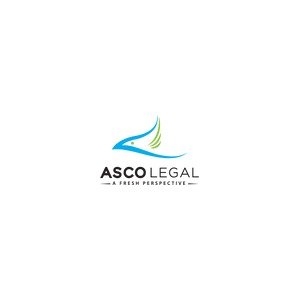Best Natural Resources Lawyers in Auckland
Share your needs with us, get contacted by law firms.
Free. Takes 2 min.
List of the best lawyers in Auckland, New Zealand
About Natural Resources Law in Auckland, New Zealand
Auckland, New Zealand's largest city, is a vibrant region known for its diverse landscapes, including coastal areas, forests, and volcanic cones. The natural resources law in Auckland is designed to manage and protect these vital resources, ensuring their sustainable use and preservation for future generations. The city's natural environment is governed by several regulations and policies, including the Resource Management Act 1991 (RMA), which is the primary legal framework for managing New Zealand's natural and physical environment. Effective management of natural resources is crucial, given the ecological significance and public interest associated with these assets.
Why You May Need a Lawyer
Engaging a lawyer specializing in natural resources can be essential in various situations. Here are some common scenarios where legal advice may be beneficial:
- Resource Consent Applications: Navigating the process of obtaining resource consent can be complex, involving detailed assessments and compliance with the RMA and local ordinances.
- Environmental Impact Assessments: If you are involved in projects that may impact the environment, legal guidance can ensure compliance with all assessment and reporting requirements.
- Land Use and Planning Disputes: Legal assistance may be necessary to resolve conflicts over land use, zoning, and planning restrictions.
- Water Rights and Management: Lawyers can provide expertise in handling rights and obligations related to water usage, allocation, and management.
- Forestry and Mining Concerns: Legal advice can help navigate the regulatory frameworks governing forestry operations and mineral resource extraction.
- Conservation and Biodiversity Protection: Lawyers assist in compliance and advocacy for the protection of biodiversity and conservation efforts.
Local Laws Overview
Auckland's natural resources are governed by various laws and regulations to ensure sustainable management. Here are several key local laws and policies you should be aware of:
- Resource Management Act 1991 (RMA): The foundational legal regulation for natural resource management, focusing on sustainable management of resources.
- Auckland Unitary Plan: Integrates regional and local regulatory requirements, including policies concerning land use and environmental protection.
- Local Government Act: Provides local councils with the authority to manage resources in compliance with broader regulatory frameworks.
- Conservation Act 1987: Governs the preservation and protection of conservation areas and biodiversity.
- National Policy Statements and Environmental Standards: Mandate specific standards and policies that must be considered in resource planning and management.
Frequently Asked Questions
What is the Resource Management Act (RMA)?
The RMA is a central piece of legislation that provides for the sustainable management of New Zealand's natural and physical resources.
Do I need resource consent for development projects?
Yes, many development projects require resource consent to ensure they meet environmental standards and do not adversely impact local resources.
How can I ensure my project complies with local environmental laws?
Engaging a lawyer who specializes in natural resources law can help guide you through compliance processes and requirements.
Are there penalties for not complying with natural resources laws?
Yes, non-compliance can lead to fines, legal proceedings, and cessation orders for ongoing activities.
How does the Auckland Unitary Plan affect resource management?
The plan serves as a rule book, guiding land use and development while integrating environmental protection policies.
What is the role of local councils in managing natural resources?
Local councils are responsible for enforcing local regulations, issuing consents, and managing resource allocation within their jurisdictions.
Can I challenge a resource consent decision?
Yes, decisions can be appealed to the Environment Court, often with legal support, to ensure all factors are properly considered.
What are National Policy Statements?
These are instruments used to set objectives for matters of national importance regarding resource management.
How are water rights regulated in Auckland?
Water rights are regulated through consents and management plans coordinated by councils and regional authorities.
What should I consider before purchasing a property in a conservation area?
Due diligence is crucial, including reviewing restrictions under the Conservation Act and possibly consulting a legal expert.
Additional Resources
Here are some resources that may be helpful for those seeking more information or legal advice:
- Ministry for the Environment: Offers guidance on environmental policies, regulations, and legislative frameworks.
- Auckland Council: Local authority providing information on resource consents, local plans, and environmental strategies.
- Department of Conservation: Manages protected lands and resources, offering insights into conservation efforts and policies.
- Environmental Defense Society: A non-profit organization providing advocacy and education on environmental law and protection.
Next Steps
If you believe you need legal assistance with matters relating to natural resources in Auckland, consider the following steps:
- Review Your Needs: Assess the specific legal requirements or challenges you face and any relevant deadlines or actions.
- Consult with a Lawyer: Reach out to a legal professional specializing in natural resources to understand your options and potential strategies.
- Prepare Relevant Documentation: Gather all necessary documents and information that might be required for legal consultation or proceedings.
- Keep Informed: Stay updated on any changes to laws or regulations that could impact your situation or project.
Lawzana helps you find the best lawyers and law firms in Auckland through a curated and pre-screened list of qualified legal professionals. Our platform offers rankings and detailed profiles of attorneys and law firms, allowing you to compare based on practice areas, including Natural Resources, experience, and client feedback.
Each profile includes a description of the firm's areas of practice, client reviews, team members and partners, year of establishment, spoken languages, office locations, contact information, social media presence, and any published articles or resources. Most firms on our platform speak English and are experienced in both local and international legal matters.
Get a quote from top-rated law firms in Auckland, New Zealand — quickly, securely, and without unnecessary hassle.
Disclaimer:
The information provided on this page is for general informational purposes only and does not constitute legal advice. While we strive to ensure the accuracy and relevance of the content, legal information may change over time, and interpretations of the law can vary. You should always consult with a qualified legal professional for advice specific to your situation.
We disclaim all liability for actions taken or not taken based on the content of this page. If you believe any information is incorrect or outdated, please contact us, and we will review and update it where appropriate.
















